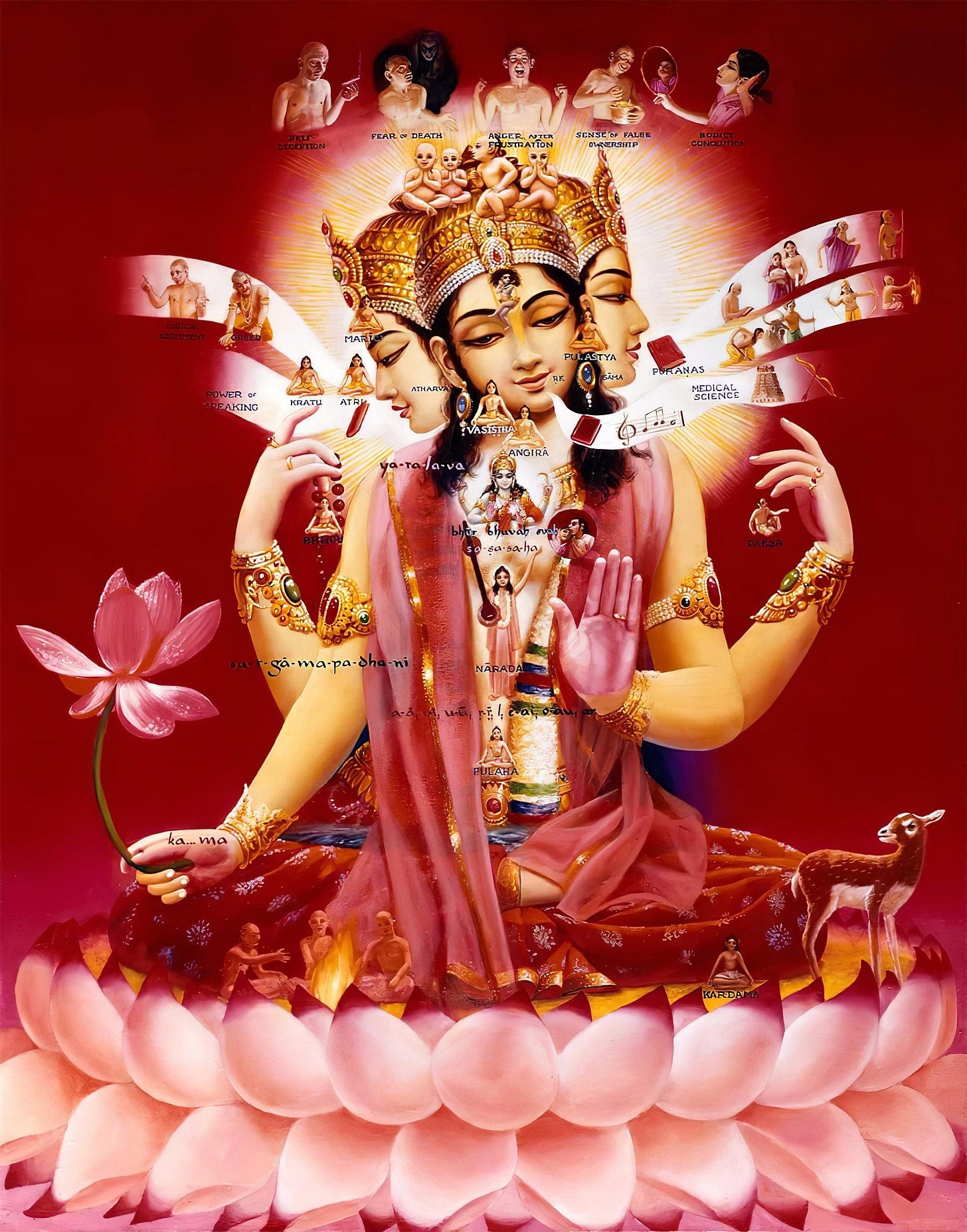The science of phonetics - śikṣā (Taittiriya Upanisad 1.2)
Sikṣā, the science of pronunciation, is described in this section in a summary way. Sikṣā is considered an important part of Vedic studies because it allows the student to properly recite the Sanskrit
Section 2: The science of phonetics (śikṣā)
Sikṣā, the science of pronunciation, is described in this section in a summary way. Sikṣā is considered an important part of Vedic studies because it allows the student to properly recite the Vedic texts, and later transmit them to his own students. Prabhupada also introduced the study of the Sanskrit language, by adding the repetition of the verses before lectures and adding the word-for-word translations of the verses in his books. By this simple process, one can learn not just the meaning and pronunciation of the verses, but also the way of properly translating them.
Text 1.2.1
om śīkṣām vyākhyāsyāmaḥ varṇaḥ svaraḥ
mātrā balam sāma santānaḥ ity uktaḥ śikṣādhyāyaḥ
I will now explain the science of phonetics (śikṣā). The scripture describing śikṣā includes varṇa (syllables), svara (intonation), mātrā (length of sounds), balam (strength of pronunciation), sāma (melody), and santāna (combination of sounds, or continuity).
Commentary: This first chapter is spoken in the context of the Vedic system of education, therefore it starts with the teachings of sikṣā, the science of pronunciation, which is considered an important part of Vedic studies. In this verse, this science is described in a summary way. Varṇa refers to syllables, letters, and phonemes, svara means intonation, mātrā means the length of pronunciation of the sounds, balam is emphasis or strength of individual sounds, sāma is the pronunciation of the seven tones, and santāna is the combination of sounds, or the continuity of the different syllables of the mantra as it is pronounced.
Many passages of the scriptures describe quite complex topics in just a few words. These passages presume that the student is already familiar with the subject. The science of sikṣā, for example, is described in the Pratishakhyas, manuals that are part of the Sikṣā Vedanga (works dealing with the phonetics of the Sanskrit language used in the Vedas). Sikṣā is considered an important part of Vedic studies because it allows the student to properly recite the Vedic texts, and later transmit them to his own students. Prabhupada also introduced the study of the Sanskrit language, by including word-for-word translations of the verses and introducing the repetition of the verses before lectures.
In a lecture (July 6, 1972), he mentioned: "If you chant these mantras, at least one in one day, your life will be glorious. This mantra, bhāgavata-mantra, not only Bhāgavata, every Vedic literature is a mantra. Transcendental sound. So practice resounding this mantra. So we have taken so much labor to put in diacritic marks, all the words, word meaning, utilize it. Don‘t think that these books are only for sale. If you go to sell these books and if some customer says, ― You pronounce it, then what you will do? Then he will understand, ― Oh, you are for selling, not for understanding. What do you think? So, therefore, it is necessary now, you have got nice books, each and every śloka, verse, should be pronounced. Therefore we have given this original verse in Sanskrit, its transliteration with diacritic mark-these marks are universally accepted amongst the scholars. So all the scholars of Sanskrit, they agreed to use this mark for pronouncing Sanskrit language."
While Srila Prabhupada makes things easy for us by giving us lengthy explanations in most verses, this is a special concession and not a rule. Most of the commentaries written by our previous acaryas were not only written in Sanskrit, but also quite concise.
In the Sat Sandarbhas, for example, Srila Jiva Goswami often presumes the reader is familiar with different concepts, verses, and books and thus just mentions them as part of a larger explanation. Srila Baladeva Vidyabhushana does similarly in most passages of the Govinda Bhasya. This helps us to appreciate the concern of Srila Prabhupada in often repeating concepts he already explained in other passages to make sure we can follow the explanations.



